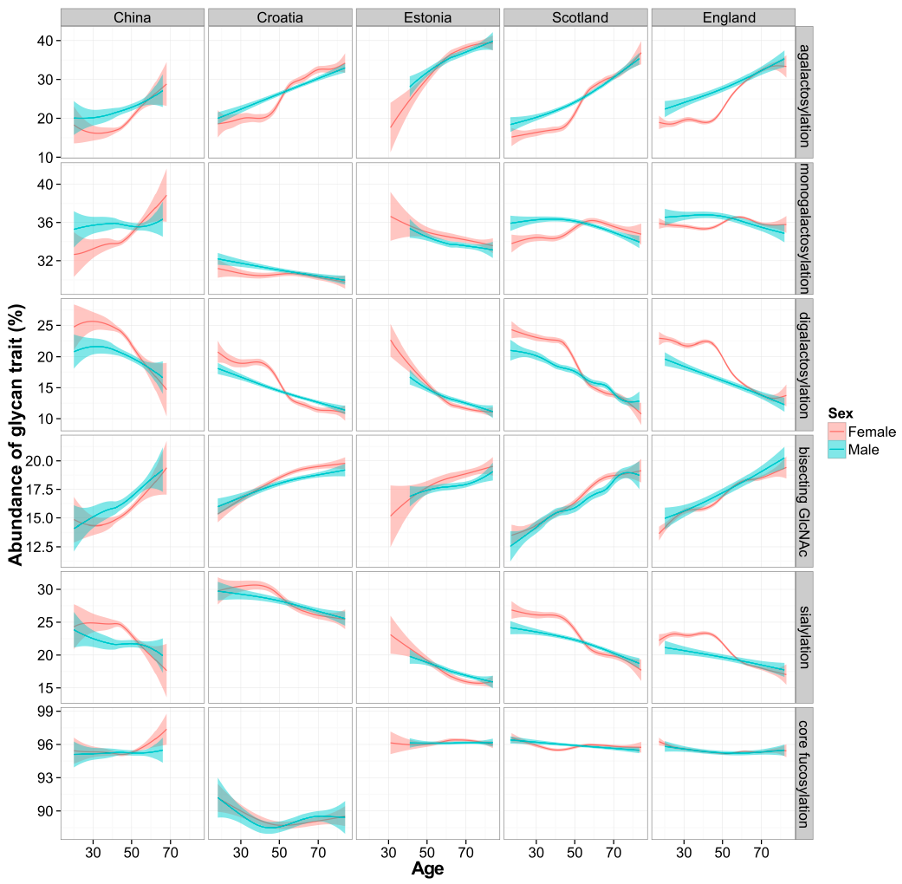 Health
HealthIt’s Official – Stress Alters the Way Brain Proteins Are Glycosylated
A recently published study has shown for the first time that traumatic stress also leads to long-lasting changes in the glycosylation of brain proteins.

People are different and glycans are one of the main molecular drivers of these differences. Large collaborative study on over 10,000 individuals from 27 different populations revealed extensive changes of the IgG glycome composition with age. In young people, glycans suppressing inflammation were dominant, while older people had more inflammation-promoting glycans. This is consistent with the inflammaging theory of ageing and provides additional evidence that glycans are not only biomarkers but also active drivers of ageing at the molecular level.
Interestingly, age-related changes in glycans were strongly affected by living conditions with people from less developed countries ageing faster than people from developed countries. IgG glycome composition strongly correlated with the expected lifespan, which is another piece of evidence that GlycanAge is a valuable tool to quantify current general health status.
The full study is available here.


Start or continue your GlycanAge journey
Don’t be afraid to reach out to us and ask questions, provide commentary or suggest topics.
Other articles you may like:
 Health
HealthA recently published study has shown for the first time that traumatic stress also leads to long-lasting changes in the glycosylation of brain proteins.
 Health
HealthCan ranges in temperature and humidity decrease or increase COVID-19 severity and mortality? Read the article to find out more.